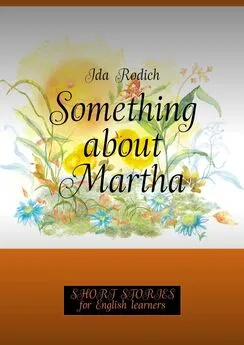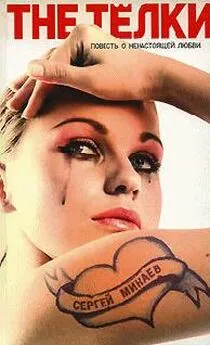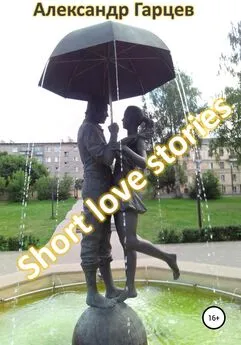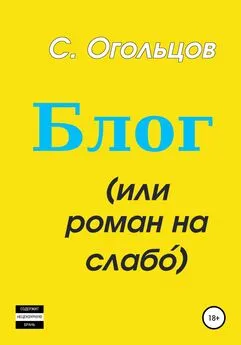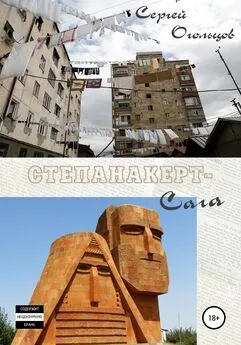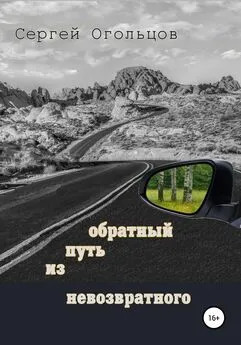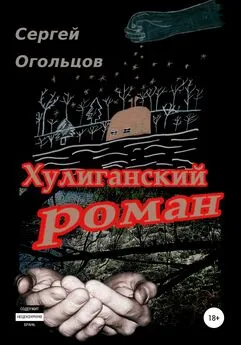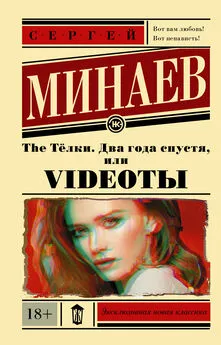Сергей Огольцов - The Rascally Romance (in a single helluva-long letter about a flicking-short life)
- Название:The Rascally Romance (in a single helluva-long letter about a flicking-short life)
- Автор:
- Жанр:
- Издательство:неизвестно
- Год:2022
- ISBN:нет данных
- Рейтинг:
- Избранное:Добавить в избранное
-
Отзывы:
-
Ваша оценка:
Сергей Огольцов - The Rascally Romance (in a single helluva-long letter about a flicking-short life) краткое содержание
Содержит нецензурную брань.
The Rascally Romance (in a single helluva-long letter about a flicking-short life) - читать онлайн бесплатно ознакомительный отрывок
Интервал:
Закладка:
On the other side of the Under-Overpass, long red streetcars were running from City to the Station and back. The Konotop’s central part named “City” was never defined officially so that Konotopers could entertain different ideas about the area’s size and borders but the Station, located within the City limits, did not belong to City, which subtleties I still had to learn.
Before Aunt Lyouda arrived by one of the streetcars from City, Uncle Tolik talked me into coming up to her under the rare lamps over the tilt into the tunnel of Under-Overpass, but he would keep out of sight, and I had to grab one of her bags and ask in a husky voice: “Not too heavy for you, eh?” But she recognized me even though Uncle Tolik had pulled the peak of my cap down to hide my eyes.
The 3 of us walked back to Nezhyn Street, and Uncle Tolik carried the bags loaded by Aunt Lyouda at the store to be squared up for at her payday.
On climbing up out of the Underpass, we crossed Bazaar along the wide aisle between the rows of empty at that hour counters under the tall lean-to roofs above them, like, lined-up abandoned gazebos, and after walking for another 10 minutes, we turned into Nezhyn Street; a couple of distant lights on far-off lampposts in its depth made it look different from the rest, unlighted, streets….
In Konotop, we arrived at the start of the last quarter in the academic year and both I and the twins became students at School 13 which very conveniently stood right opposite Nezhyn Street, across field-stone-cobbled Bogdan Khmelnytsky Street. Old folks called it “Cherevko’s school” because under the Czar, a certain rich man from the nearby village of Podlipnoye, Cherevko was his name, built a brick two-story pub-house, but the then authorities didn’t allow him to operate it because the would-be pub’s stood too near to the only factory in the city, threatening to make drunks of the local working class en masse, so Cherevko donated the building to the city for arranging a school of four classrooms in it… In the Soviet era, the morality of workingmen rocketed up so that the present-day pubs moved two-three times closer to that same industrial unit and “Cherevko’s school” got expanded with a long one-story building in the pronounced barrack style, also of bricks. The addition stretched along a quiet side street slanting toward the Swamp named, interchangeably, the Grove, that separated the village of Podlipnoye from Konotop or vice versa.
Going to school for the first time, I couldn’t get the meaning of canvas pouches hanging-dangling alongside the schoolbags or sizable leatherette folders of the students walking in the same direction.
I was surprised to learn that in those pouches they carried their ink-wells. It felt a little out-of-date because the schoolchildren at the Object had long since started using fountain pens with an inside ink-tank whose capacity allowed for refilling it no oftener than once a week if you did not write too much. Ha! Kinda getting from the era of gasoline engines back to the epoch of post stages, yet the very next morning same pouches did not look as something overly striking anymore.
Protracted deafening ding-and-dong of the huge electric bell filled the long corridor in the one-story building, plus all the yard of the “Cherevko’s school”, and 3 adjoining streets in the vicinity. If it signaled a break, everyone went out into the wide schoolyard with an ancient tree in its center and the low building behind it, which comprised the Pioneer Room, the workshop for Handicraft classes, the school library and, as I was too late to learn at the moment, the ski storage room.
The gym, with its windows grated from inside to prevent smashing the panes by ball hits at PE classes, abutted the far end of the barrack-like building at the right angle. Opposite the blind end wall of the gym, there stood a detached hut of toilets of whitewashed brick.
All the break long, a swarm of students hung out at the high stoop of three stairs by the entrance door. The horizontal handrails in the stoop’s landing were congested by perched boys until a maverick teacher would shoo them off and they reluctantly comply only to again light up the moment the teacher’s back vanished in the doorway.
A lively trickle of students kept flowing to and from the toilets in the yard corner, yet the majority of boys (and boys only!) veered before reaching the toilets hut and turned round the gym corner. There, in the narrow passage between the gym and the tall fence of the neighboring garden, life ran high in a brisk cash game for ready money, the game of Bitok at the school Las Vegas grounds, where the average stake was about pyatak , 5 copper kopecks, and no less than 2. If you had nickels, say, 10, 15, 20 or even fifty-kopeck in one piece, it’d be exchanged before you say “knife”.
The stakes stacked on the ground in a tiny neat tower—one atop the other, each coin heads up—the bitok comes into play.
What’s a bitok ? It’s hard to say, every player had his favorite hunk of iron—a bolt, a railroad spike, a polished ball from a huge bearing—no limits in the game, you could use whatever you wanted, be it even a stone. And even the absence of any gear was no problem—anyone would readily lend you his bitok for hitting.
Hitting what? That stack of kopecks, silly!. Any coin turned over by your hit and showing their tails is now yours. Collect them into your pocket and hit the remaining stubborn heads, one by one. When no coin turns over, the next player starts his tries.
And who is to open the game? Quite logically, the one who enters the biggest share of kopecks the stack…
At times, the warning cry of “ shuba !” from the gym corner signaled the approach of some male teacher. The money vanished right away from upon the ground into the pockets, cigarettes hid inside the capped palms. However, the alarm was always false – the teachers turned to the toilet where beside the row of common holes in the floor there was the boarded cabin for Director and the teaching staff.
In just three games, I lost fifteen kopecks, that Mother gave me for a cabbage piroshki from the school canteen. This was no wonder though because the bitok virtuosos were training their hands at home with their favorite bitok pieces while I had to hit with a borrowed one. Maybe, that was even for the better, leaving no time for me to get addicted…
(…the Konotopian “shuba!” takes roots from thief slang “shukher!” that takes roots from Yiddish “zukher!” each of which means “cheese it!”. The school slang “atas!” at the Object meant exactly the same yet derived from the French ”l’atantion!”. Traditionally, Russian gentry were taught the French…)
~ ~ ~
On my first day at school, Class Mistress, Albina Grigoryevna, planted me next to a skinny red-haired girl, Zoya Yemets. I never used Zoya’s inkwell, yet Sasha Dryga, a grown-up double repeater with a greasy forelock down to his eyes, resented my presence at her desk and, after the classes, he didn't omit informing me of the fact…
And on the way home I made friends with my classmate Vitya. His last name sounded a bit scary, yet it’s a fairly trite one among the Ukrainian family names – Skull. Our on-the-fly friendship had sound foundation though because we both were walking along one and the same Nezhyn Street, and he also lived on it, only farther, next to the Nezhyn Store which was halfway from any of the street’s ends. The following day I asked Albina Grigoryevna for moving me to the last desk in the left row, to be seated next to Skull, because we were neighbors and could help each other with home assignments. She respected so weighty reasons and I left Zoya’s side.
The desk in front of me and Vitya was seated singly by Vadya Kubarev, which situation immediately gave rise to our triple friendship.
The last names at school were, naturally, used by only teachers, while among the students Skull would surely turn Skully, Kubarev become Kuba and so forth. What handle did I get? Goltz or Ogle? Neither. If your name happened to be “Sehrguey”, they did not bother about vivisecting the last name and everyone started to call you “Gray” by default…
Friendship is power. When the 3 of us were together, even Sasha Dryga refrained from bullying… Friendship is knowledge. I shared the pieces of poetry never included in school curriculum but firmly memorized by all the boys at the Object, such as “To get insured from the cold…”, and “The light was burning in the pub…”, and “Vaniyka-Halooy went to the fair…” as well as other short but flowery instances of rhymed folklore. And in the context of cultural and philological exchange, my friends explained to me the meaning of popular Konotopian expressions like “Have you fled from Romny?” or “It’s time to pack you off to Romny.” As it turned out, the town of Romny, about seventy kilometers from Konotop, was the seat of Regional Psychiatric Hospital for nuts…
~ ~ ~
That morning the gambling bouts at Bitok ran low behind the gym. On that clear April morning, the lads stood arguing and waiting for the confirmation of so welcome rumors that the Central TV news program “Time” was grossly mistaken the previous night. Because some guy heard from guys from School 10 that last night some man landed by parachute in the Sarnavsky forest near the Konotop outskirts. And now Sasha Rodionenko would arrive from City, his family had recently moved over there but he still attended our school, just let's wait him come, he should know for sure, he would confirm…
I remembered the flight of Gagarin and as soon after him Guerman Titov was orbiting all day long to say in the evening, “Bye, for now, I’m going to bed.” And Dad chuckled with delight and replied to the radio on the wall, “That’s a good one!”
Our cosmonauts were always the first and we, elementary school pupils, were arguing who of us was the first to hear the radio announcement about the flight of Popovich or Nikolayev, or the first cosmonautess Tereshkova…
Sasha Rodionenko came but he didn’t confirm anything. So the Central TV news program “Time” was not mistaken. And the sun faded in grief…
Cosmonaut Vladimir Komarov…In the landing module…
Entering the dense layers of the earth’s atmosphere…
Perished…
Then Father came and he was followed a week later by the railway container with our things from the Object that arrived at the Freight Station and moved from there on a platform truck to 19 Nezhyn Street, both the wardrobe with the mirror on its door and the folding couch-bed, and the two armchairs with wooden armrests, and the TV set, and all the other implement-utensils. Even the old-fashioned leatherette sofa arrived for which there was no room in the khutta .
(…now I can feel nothing but horror at the thought: how could 10 people—2 families and their mutual Grandma Katya—to fit into and live in 1 room and 1 kitchen?
But at that time I didn’t think of such things at all because since it was our home and we lived there the way we lived, then it couldn’t be somehow different, everything was as it should be and I just lived on along and that’s it..)
For the night, Sasha and I readied the folding couch-bed and shared it with Natasha, who lay across at our feet with a chair put next to the couch for her legs. My brother and I had to keep our feet pulled up to the middle of our bed, otherwise, Natasha would grumble and complain to the parents on their bed by the opposite wall, and tell on me and Sasha for kick-fighting. Nice news, eh?! She could stretch her legs out as far as she wanted, and rebuffed my offers to swap our places… The family of Arkhipenkos and Grandma Katya slept in the kitchen.
Читать дальшеИнтервал:
Закладка:

